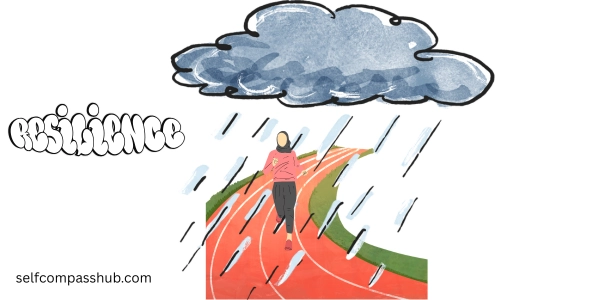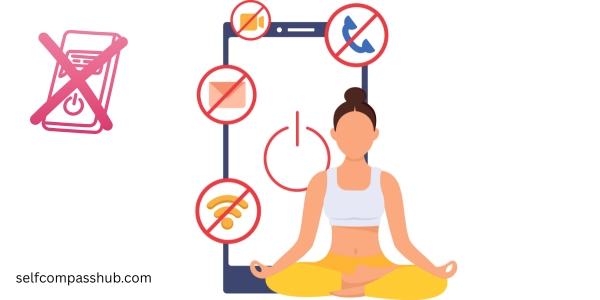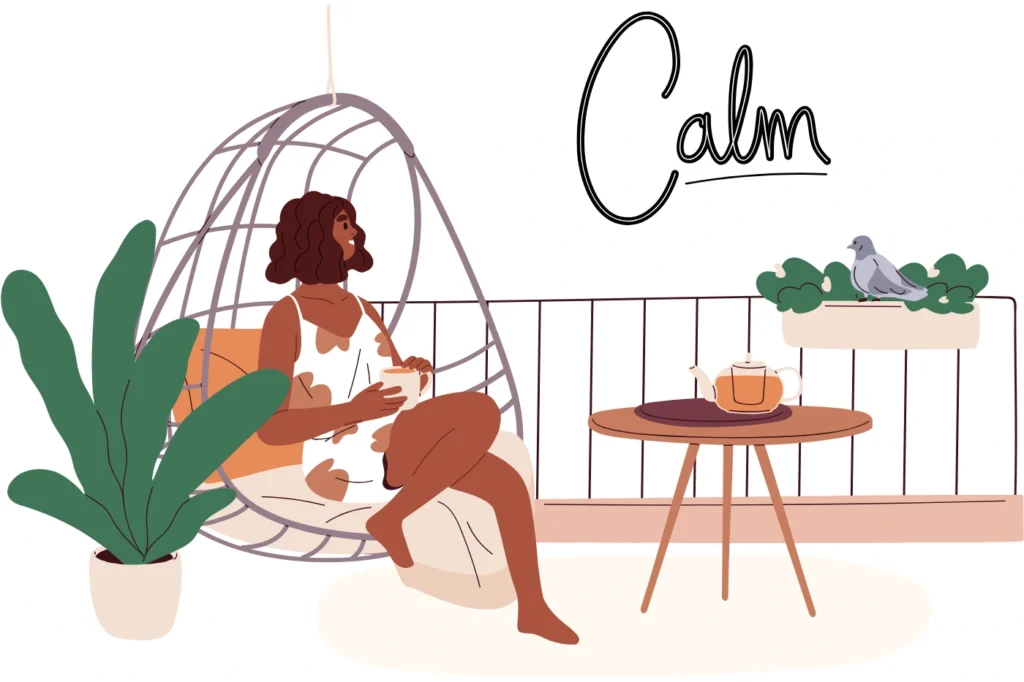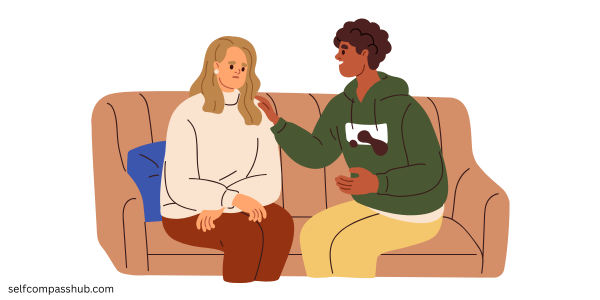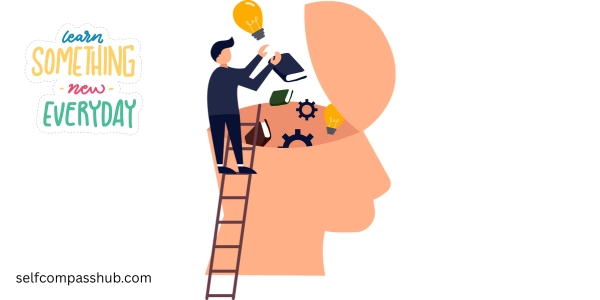Last Monday, I found myself staring at my laptop screen, completely overwhelmed. Three deadlines loomed, my inbox was bursting, and my brain felt like it was stuffed with cotton. I couldn’t focus on anything. We’ve all been there, right? That moment when your mind feels fragile instead of strong.
I’ve spent years trying to build mental resilience – sometimes succeeding, often failing. What I’ve learned is that mental strength isn’t about never feeling overwhelmed. It’s about how you respond when you do.
This isn’t about becoming superhuman or never feeling negative emotions. Real mental strength accommodates our full humanity – our doubts, our bad days, and our occasional need to just watch Netflix and eat ice cream. But it also gives us tools to navigate life’s challenges with a bit more grace and a lot less burnout.
1. Morning Mindfulness (But Not How You Think)
I used to roll my eyes at meditation advice. Sit still for 20 minutes? Who has time for that?
Then I discovered that mindfulness doesn’t have to mean lotus position and incense. For me, it’s five minutes of conscious breathing while my coffee brews. Sometimes it’s just paying attention to the sensation of water in my morning shower.
Why it works: Brief mindfulness reduces activity in the amygdala (your brain’s alarm system) and strengthens the prefrontal cortex (your brain’s CEO). But instead of thinking about brain regions, I like to imagine it as turning down the volume on the anxious radio station that’s always playing in my head.
Starting small: Try 60 seconds – yes, just one minute – of focused breathing tomorrow morning. Don’t worry if your mind wanders; mine still does after years of practice. Just gently bring your attention back when it happens.
A real obstacle: “I don’t have time.” I get it. Try attaching mindfulness to something you already do – brushing teeth, waiting for your computer to boot up, or sitting in your car before entering work.
2. Productive Discomfort
Last year, I signed up for a half-marathon despite hating running. I wasn’t aiming to win – I was training my mind to get comfortable with discomfort.
Why it matters: Resilience isn’t built during comfortable times. It’s developed when we voluntarily step into challenges we can grow from. Research shows that willingly engaging with difficult tasks builds your brain’s capacity to handle stress in other areas.
Starting small: Choose one small uncomfortable thing each day – a cold shower, a difficult conversation you’ve been avoiding, or learning something that feels just beyond your current abilities.
A personal struggle: I still find myself avoiding certain discomforts. Last week, I procrastinated on calling my insurance company because I dreaded the hold music and potential conflict. But when I finally did it, I felt a disproportionate sense of accomplishment. These small victories compound.
3. Digital Boundaries That Actually Work
I’ve tried deleting social media apps at least a dozen times. I’ve downloaded focus apps and screen time trackers. Most failed within days.
What finally worked? Creating boundaries that acknowledged my human weaknesses. I’m not going to pretend I can resist the allure of the scroll without help.
Why it works: Your willpower is finite. Environmental design beats motivation every time. By creating systems that make distraction harder, you conserve mental energy for important tasks.
Starting small: Place your phone in another room when working on important tasks. Use browser extensions that block distracting sites during work hours. I use an old-fashioned alarm clock instead of my phone to avoid morning scrolling.
The reality check: I still get distracted sometimes. That’s not failure – it’s being human. The difference now is that I notice faster and redirect without the self-criticism spiral.
4. Deliberate Recovery
I used to wear my exhaustion like a badge of honor. “I’m so busy” was practically my personal motto. Then I burned out so badly I couldn’t get out of bed for three days.
Mental strength isn’t built through constant pushing. It’s developed through strategic recovery.
Why it matters: Your brain processes information and solidifies learning during rest periods. Without adequate recovery, your cognitive function actually declines and stress hormones increase.
Starting small: Schedule at least 30 minutes daily for complete mental rest – not scrolling, not watching TV, but truly giving your brain a break. For me, it’s reading fiction, walking without podcasts, or simply staring at trees (sounds weird, feels amazing).
My ongoing challenge: I still feel guilty about rest sometimes. Just yesterday, I caught myself answering emails during what was supposed to be my recovery time. Recognizing this tendency is the first step to changing it.
5. Connection Over Perfection
During my worst bout of anxiety, I isolated myself because I thought I needed to “fix” my problems before being around others. This was exactly backward.
Why it matters: Human connection literally changes your neurochemistry, reducing stress hormones and increasing oxytocin. Vulnerability with trusted people gives your brain external regulation help when your internal systems are overwhelmed.
Starting small: Share one genuine thing with someone today – not your deepest trauma, just something real. “I’m having a tough day” or “I could use some encouragement with this project” opens doors to meaningful connection.
An uncomfortable truth: This is still hard for me. Last month, I struggled with a project and pretended everything was fine for weeks before finally admitting to my partner that I was drowning. The relief was immediate, and their perspective helped solve a problem I couldn’t see through my stress.
6. Intentional Learning
I used to think of learning as something that happens in school or training sessions. Now I see it as a daily practice that builds mental flexibility.
Why it matters: Learning new things creates alternative neural pathways. When old solutions don’t work, your brain has more options to try. This cognitive flexibility is the essence of resilience.
Starting small: Spend 15 minutes daily learning something unrelated to your job – a language, an instrument, a craft, or even just reading about an unfamiliar topic. I’m currently learning basic carpentry through YouTube videos and simple projects.
Reality check: Some days, my brain feels too full for new information. That’s fine. Learning doesn’t need to happen every day to be effective.
When You Struggle (Because You Will)
Let’s be honest – we all have days when these practices feel impossible. Days when our minds feel about as strong as wet tissue paper.
On those days, I go back to basics: enough sleep, water, and one small accomplishment. Sometimes mental strength looks like just showing up, even when you don’t feel strong at all.
I remember a particularly dark week last winter when anxiety had me in its grip. My “mental strength practice” that week wasn’t meditation or challenging myself – it was simply getting out of bed and taking a shower each day. That was enough.
The strongest minds aren’t the ones that never falter – they’re the ones that learn how to begin again, without shame, after every setback.
What Works For You?
Mental strength is deeply personal. Some of these practices might resonate with you; others might feel completely wrong. That’s not just okay – it’s expected.
I’d love to hear what builds your mental resilience. What daily habits keep your mind strong when life gets challenging?
Remember that the most “human” approach to mental strength acknowledges our limitations, celebrates small victories, and views progress as a winding path rather than a straight line.
What small step will you take today?


